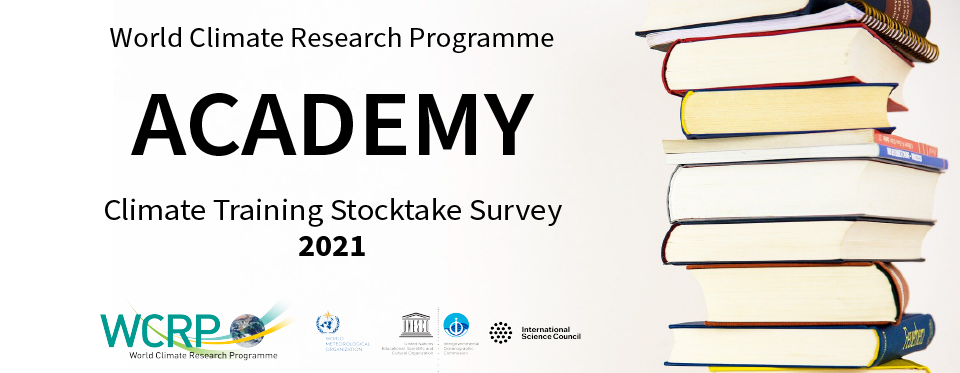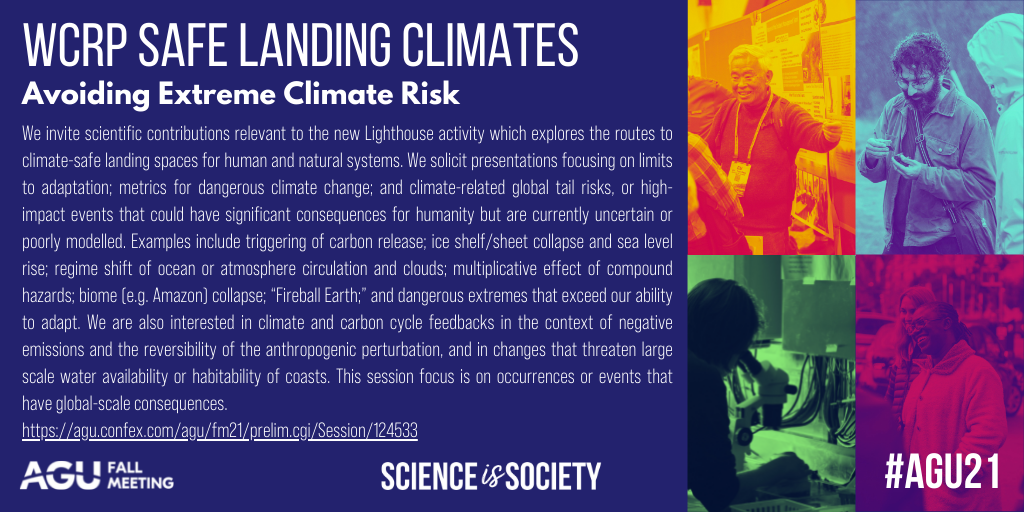- Details
The WCRP Academy Lighthouse Activity is the recently formed research training advisory and coordination arm of the World Climate Research Program (WCRP). As one of the existing WCRP Academy co-chairs has recently stepped down, we are calling for self-nominations for a new co-chair for the activity. For more information, click the heading above. The deadline for nominations is 1 October 2021.
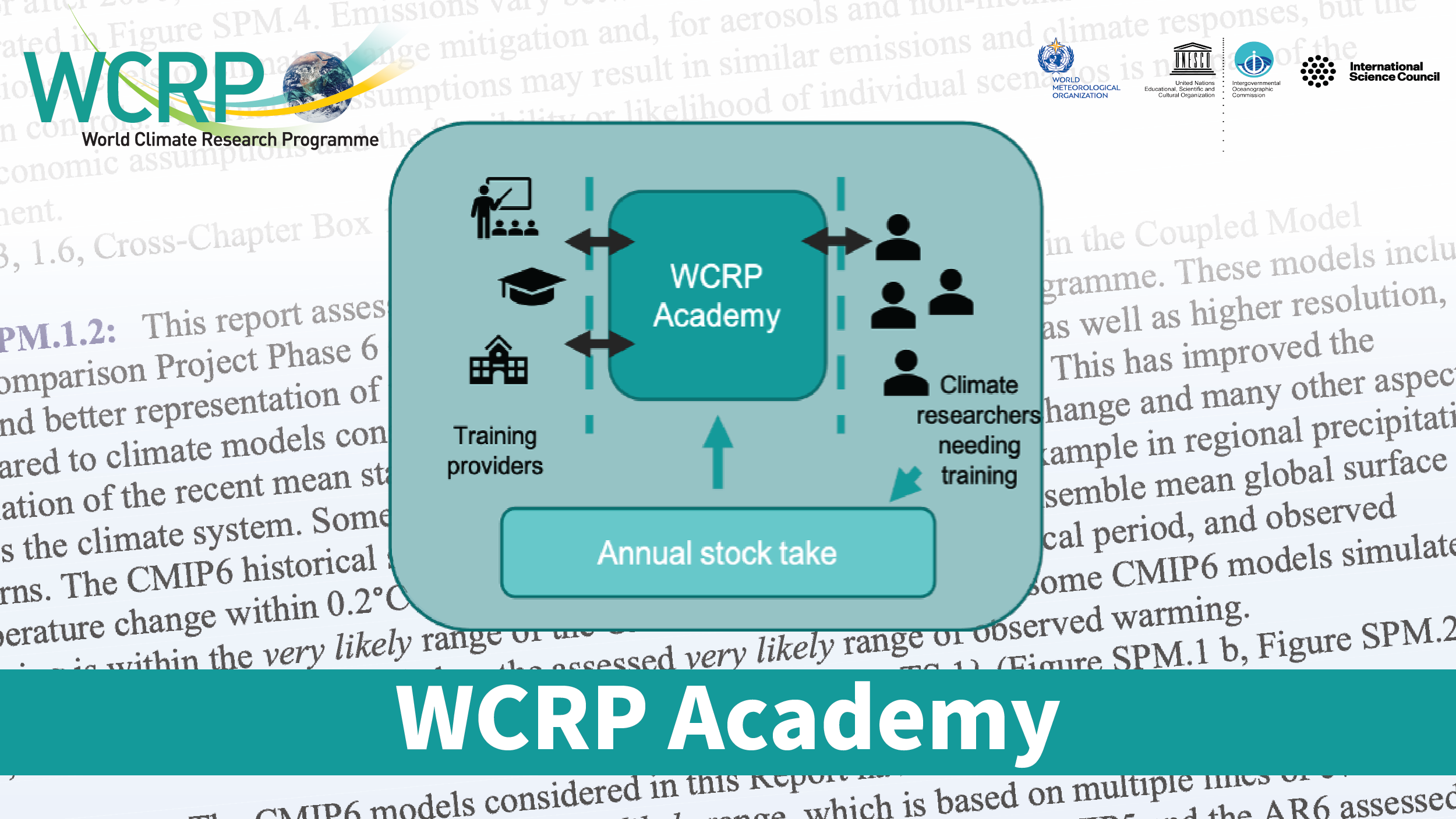
- Details
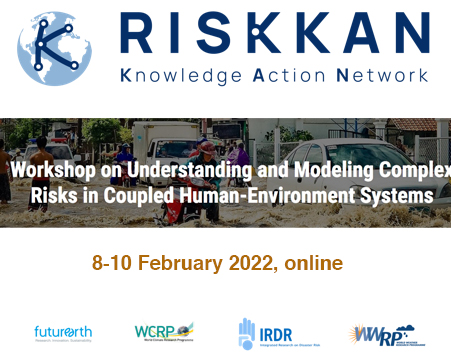
The Risk Modeling and Insurance Working Group of the joint Future Earth, WCRP, IRDR, WWRP "Knowledge Action Network on Emergent Risks and Extreme Events" (Risk KAN) initiative organizes a three-day workshop on Understanding and Modeling Complex Risks in Coupled Human-Environment Systems to bring together scientists and practitioners in the field of modeling risk in human and environmental systems. The workshop will be held online from 8 to 10 February 2022.
Sessions
- Day 1: Systemic Risks
- Day 2: Advances in Modelling Socio-Economic Impacts
- Day 3: Resilience and Adaptation
Deadlines
- Abstract submission: 15 Aug 2021 – 15 October 2021
- Abstract acceptance: 1 December 2021
- Registration: 1 December 2021 – 31 January 2022
To know more about the workshop and to submit an abstract, click here.
- Details
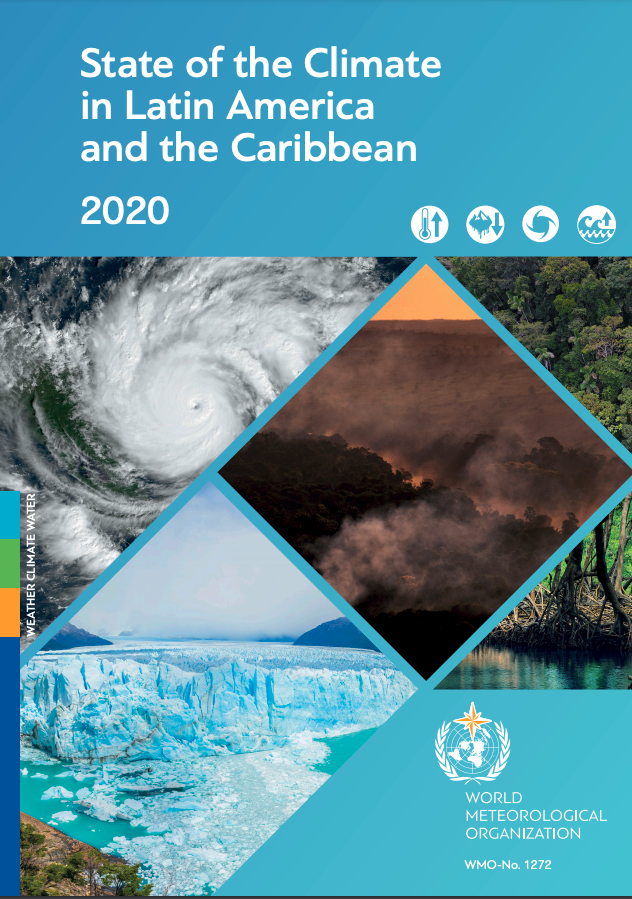
- Details
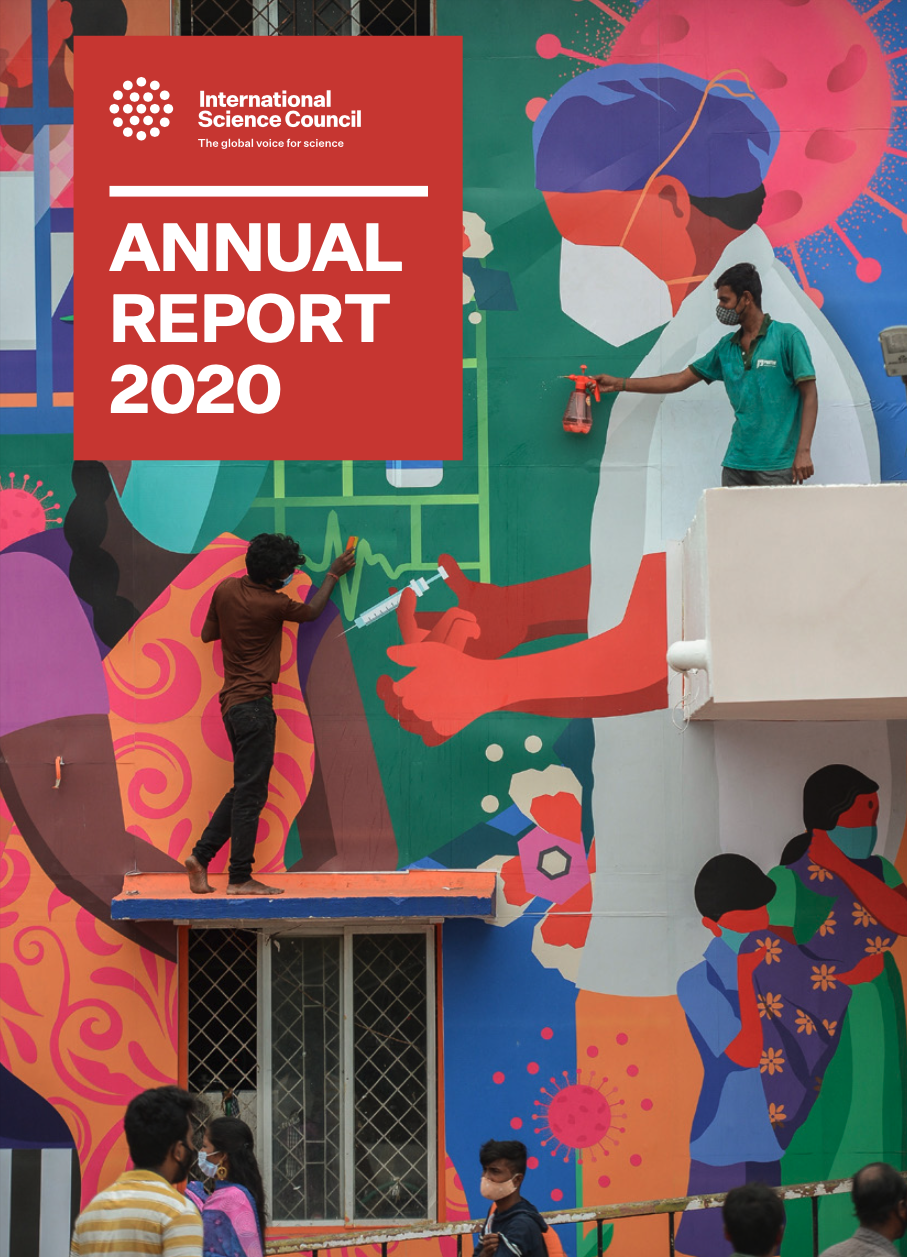 The International Science Council (ISC), one of WCRP's three co-sponsors, has just released its 2020 Annual Report. The report looks at an extraordinary and unprecedented year for science, in which the COVID-19 pandemic caused widespread disruption for us all. On the other hand, the crisis also created new opportunities and demonstrated the importance of international scientific collaboration. The 2020 Annual Report is available to view online and to download as a PDF on the ISC website.
The International Science Council (ISC), one of WCRP's three co-sponsors, has just released its 2020 Annual Report. The report looks at an extraordinary and unprecedented year for science, in which the COVID-19 pandemic caused widespread disruption for us all. On the other hand, the crisis also created new opportunities and demonstrated the importance of international scientific collaboration. The 2020 Annual Report is available to view online and to download as a PDF on the ISC website.
- Details
WCRP is proud to announce the launch of the International Monsoons Project Office (IMPO), a new joint office of WCRP and the World Weather Research Programme (WWRP), hosted at the Indian Institute of Tropical Meteorology (IITM), Pune, India. For more information, please click the heading above.
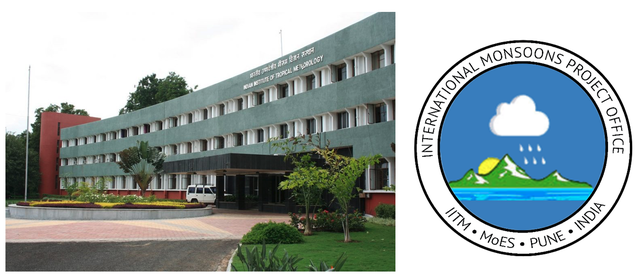
- Details
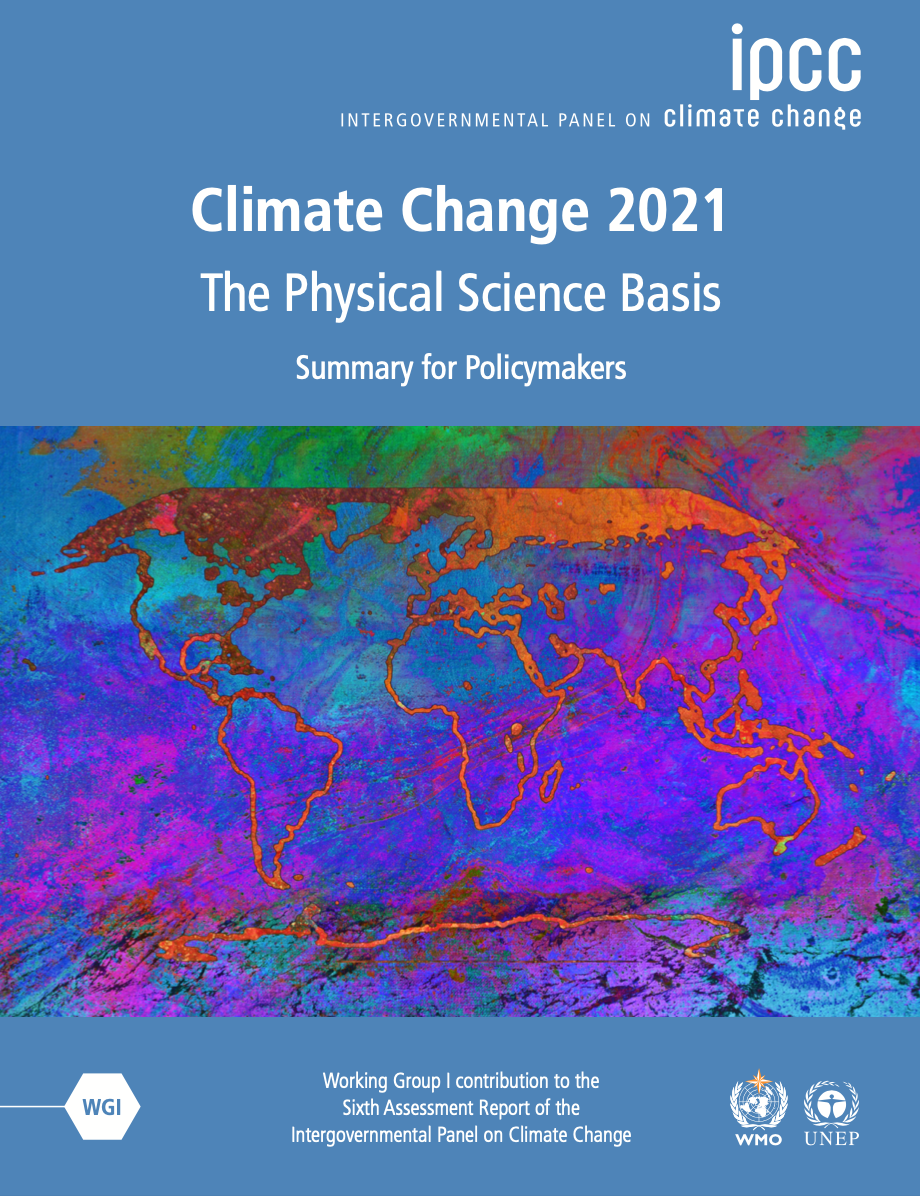 The launch of the first part of the Intergovernmental Panel on Climate Change (IPCC) Sixth Assessment Report (AR6) is an important milestone in climate science and calls strongly for action. The Chair and Vice-Chair of the WCRP Joint Scientific Committee congratulate the IPCC Working Group I Team and confirm ongoing support from the WCRP Community. To read more, click the heading above.
The launch of the first part of the Intergovernmental Panel on Climate Change (IPCC) Sixth Assessment Report (AR6) is an important milestone in climate science and calls strongly for action. The Chair and Vice-Chair of the WCRP Joint Scientific Committee congratulate the IPCC Working Group I Team and confirm ongoing support from the WCRP Community. To read more, click the heading above.
- Details
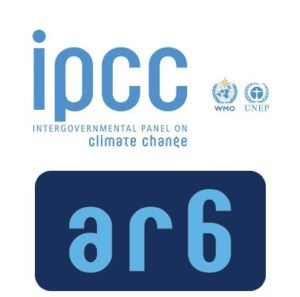 The Intergovernmental Panel on Climate Change (IPCC) will launch its Summary for Policymakers of the Working Group I contribution to the Sixth Assessment Report, Climate Change 2021: The Physical Science Basis, subject to approval by the Panel. See the IPCC website for the report.
The Intergovernmental Panel on Climate Change (IPCC) will launch its Summary for Policymakers of the Working Group I contribution to the Sixth Assessment Report, Climate Change 2021: The Physical Science Basis, subject to approval by the Panel. See the IPCC website for the report.
The press conference, which starts at 10:00 CEST on 9 August 2021, will be streamed live on the IPCC YouTube channel: https://bit.ly/IPCCLIVE and on the IPCC Facebook page.
- Details
We warmly invite you to the WCRP Climate Research Forum for South America, to take place on 8 and 9 September 2021. This is a two-day event, with sessions on the 'My Climate Risk’ Lighthouse Activity, the ‘Regional Information for Society’ (RIfS) Core Project, capacity development in South America, and WCRP, Future Earth, and the UN Ocean Decade. For more information and to register, please see the webpage in English and Español.
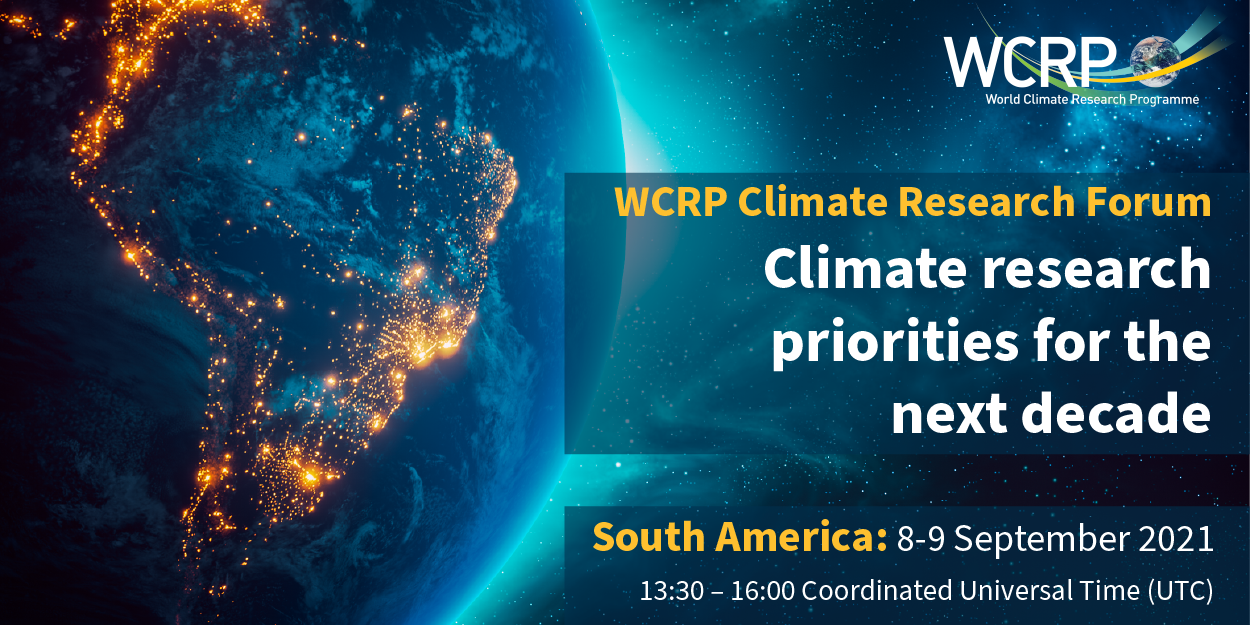
- Details

In a comprehensive review, the SPARC Reanalysis Intercomparison Project (S-RIP) activity has conducted a coordinated intercomparison of reanalysis data sets with respect to key diagnostics. The results can be used to provide guidance on the appropriate use of reanalysis products in scientific studies of relevance to SPARC and beyond.
The SPARC Reanalysis Intercomparison Project (S-RIP) Final Report, is an early online release of the final report of the SPARC S-RIP Activity. This version has been reviewed in a blind peer-review process, and type-setting has been done to produce this early version of the report. The editorial work that remains to be done will not change the content of the report.
To read the early online release of the S-RIP Final Report, click here.
- Details
Now, more than ever, the world needs climate scientists. A key part of building the climate research workforce needed to address the challenges of this century is broadening access to climate science training. The WCRP Academy Lighthouse Activity is being designed to make positive steps towards giving more scientists access to the training they need. A key pillar of this is an annual, global stocktake of training needs.
We invite climate scientists, those who would like to train in climate science, and training providers to help us take stock of the climate science training that exists and isolate any gaps so that we can make climate science training better and more responsive to the changes that we will face in the next decade and beyond. Find out more and complete the survey on the Academy web pages. Deadline extended to 19 December 2021!
- Details
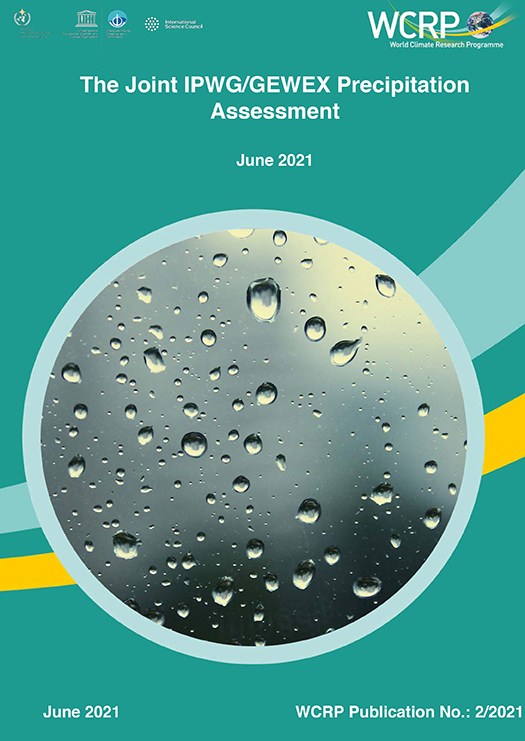
The International Precipitation Working Group (IPWG) and the GEWEX Data and Analysis Panel (GDAP) are releasing the Joint IPWG-GDAP Precipitation Assessement.
This comprehensive report reviews the current state of precipitation products, and includes assessments of sub-daily global satellite precipitation products, discussions of various climate applications of precipitation products, and deliberations on emerging directions and the future of precipitation products.
To read the report, please see WCRP publication number 2/2021 on our publications webpage.
- Details
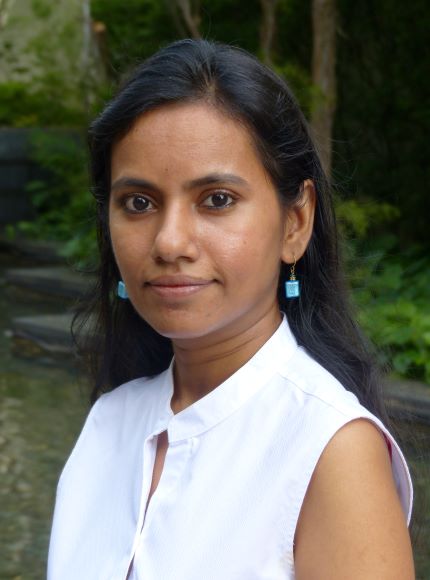
We are delighted to announce that Hindumathi Palanisamy joins the WCRP Secretariat.
Hindumathi Palanisamy is an oceanographer specialized in space-based and in-situ ocean observations with a PhD in space oceanography from the University of Toulouse and French Space Agency in France. Prior to joining WCRP Secretariat, Hindumathi was a senior research scientist at the Centre for Climate Research Singapore where she focussed on developing regional sea level research expertise in the South East Asian region. Earlier to that, she worked for the European Space Agency’s Climate Change Initiative- Sea Level Budget Closure project in Toulouse, France.
At the WCRP Secretariat, Hindumathi will be responsible for supporting three of WCRP’s Core Projects, CLIVAR, GEWEX and SPARC. In addition, she will also provide support to other activities of the new WCRP and work closely with the WCRP Secretariat staff.
- Details
We invite you to submit your abstract to one of the WCRP co-sponsored American Geophysical Union (AGU) Fall Meeting science sessions (full list). There are a number of co-sponsored sessions, as well as one on the new WCRP Lighthouse Activity 'Safe Landing Climates.'
WCRP will have a range of activities taking place, including a WCRP Town Hall, Union/special sessions on the WCRP Academy and My Climate Risk Lighthouse Activities, and other events.
See our WCRP AGU Fall Meeting 2021 webpage for more information.
The 42nd Session of the WCRP Joint Scientific Committee (JSC-42) met remotely from 28 June to 2 July
- Details
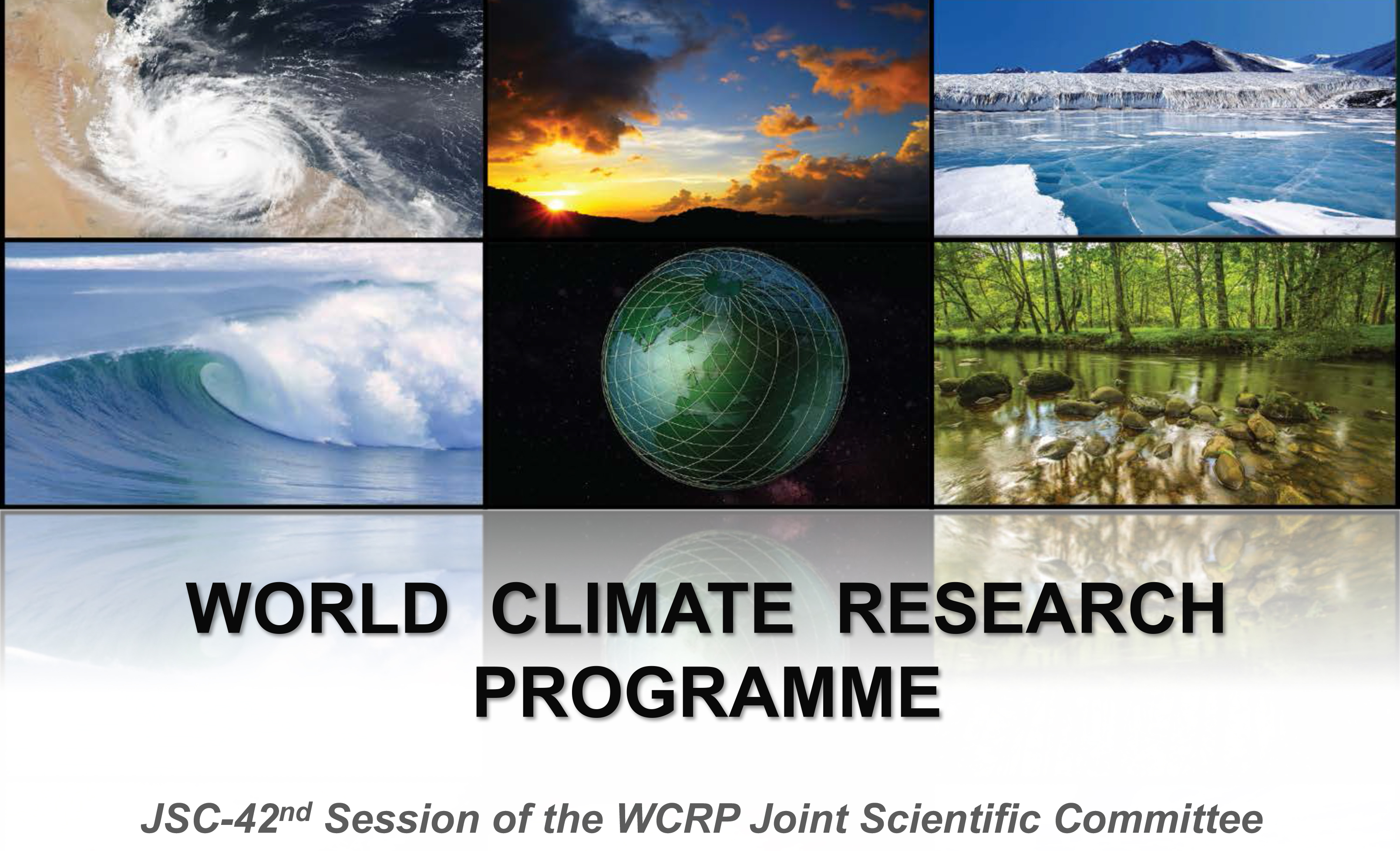
The 42nd Session of the WCRP Joint Scientific Committee (JSC-42) met remotely from 28 June to 2 July to consider a number of important decisions for the programme, including the approval of plans for the new WCRP Lighthouse Activities, the new “Core Projects” on “Earth System Modelling and Observations” and “Regional Climate Information for Society”. In addition, the Core Projects, Grand Challenges and other major activities reported on their progress towards their science objectives and on how they are strengthening their work in response to WCRP's Strategic Plan 2019-2028.
Discussions in breakout sessions about coordination and communication, science gaps, engagement and need of inclusion and diversity, science partnerships, the impact of WCRP science, and resources were very rich and interesting.
The outcomes of JSC-42 will be considered by the JSC at their closed meeting on 8 July 2021. The reports and presentations are available at https://www.wcrp-climate.org/jsc42-documents
- Details

The award cites Prof. Kang’s science achievements, particularly in the field of climate modeling and prediction, and his pioneering contributions to operational and research climate centers, and for nurturing next-generation scientists, including from developing countries.
To read the WMO article, click here
- Details
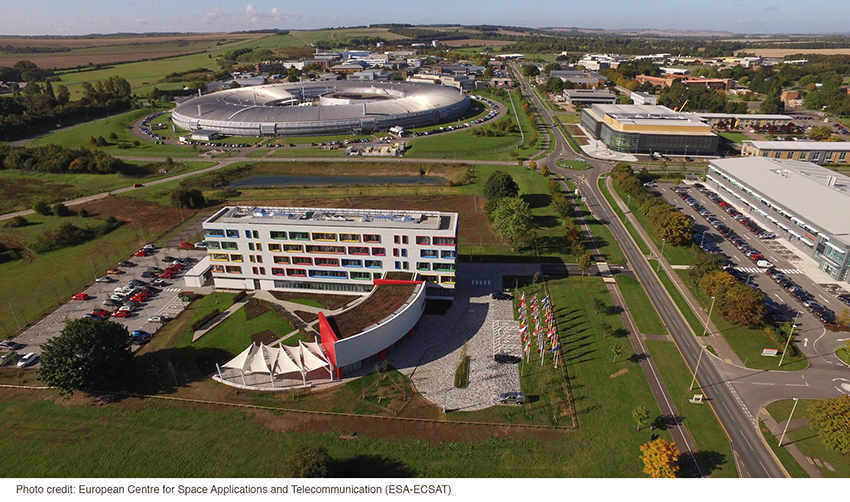
The European Space Agency has been selected by the World Climate Research Programme (WCRP) as the host for a new Coupled Model Intercomparison Project (CMIP) International Project Office (IPO), which should be fully operational from September 2021.
The position of Director for CMIP-IPO has now been advertised. Interested candidates can find further details on the post, including a full job description, and how to submit an application from any of the companies listed below:
- Details
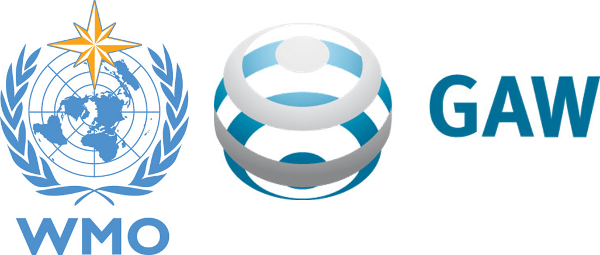
This year's quadrennial GAW Symposium will happen online from 28 June to 2 July.
It will consist of the following scientific sessions: 1) Science for services: The importance of atmospheric composition; 2) Filling critical gaps in observations; 3)Atmospheric composition, pandemics, and support for a new health agenda; 4) Earth system modeling and data management.
Registration information and draft agenda of the Symposium are available at https://community.wmo.int/meetings/gaw-symposium-2021
- Details
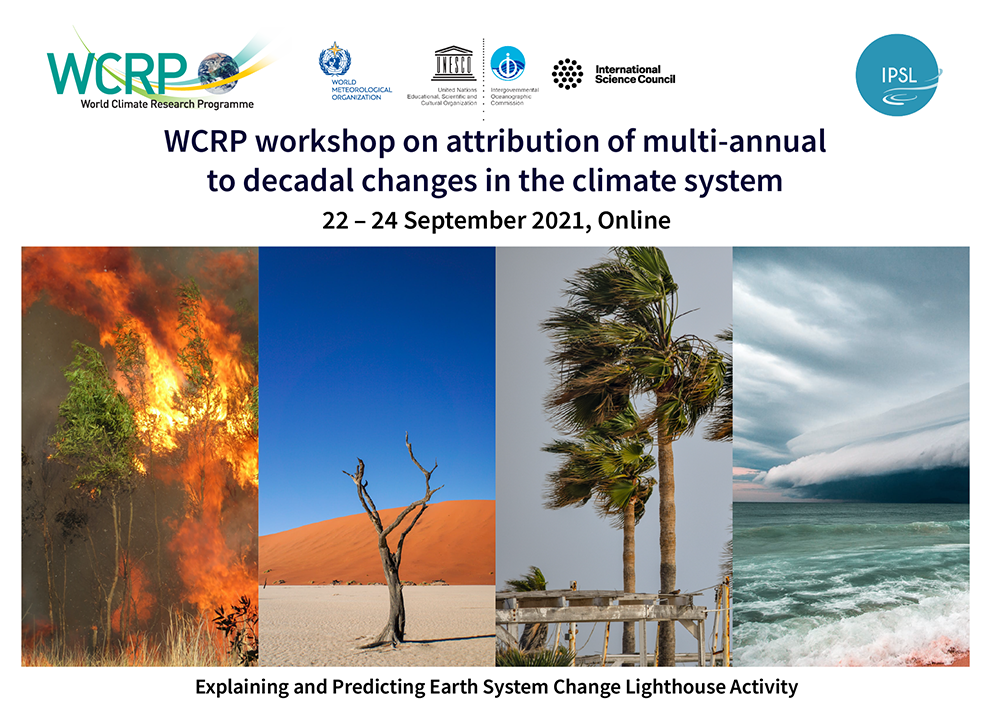
The Explaining and Predicting Earth System Change Lighthouse Activity Workshop on "Attribution of multi-annual to decadal changes in the climate system" will take place online, from 22 to 24 September 2021 (free registration and attendance).
Deadline for abstract submission: June 30, 2021
To know more about the workshop and to submit an abstract and register, visit the workshop website at: https://wcrp-epesc.sciencesconf.org/.
To find out more click the heading above.
- Details

This difficult decision to postpone the 2nd Climate Observation Conference has been taken after careful consideration and consultation with the sponsoring programmes GCOS and WCRP and the supporting organization EUMETSAT.
The new date of the Climate Conference will be announced in due time on the conference website: https://www.eventsforce.net/gcos-coc.
- Details
Less than two days to go to the WCRP Climate Research Forum for Europe and Western Asia. For more information and to register see the forum webpage.
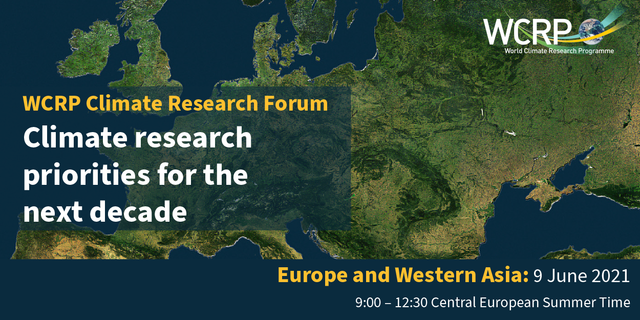
Abstract submission open for the WCRP workshop on Extremes in Climate Prediction Ensembles (ExCPEns)
- Details
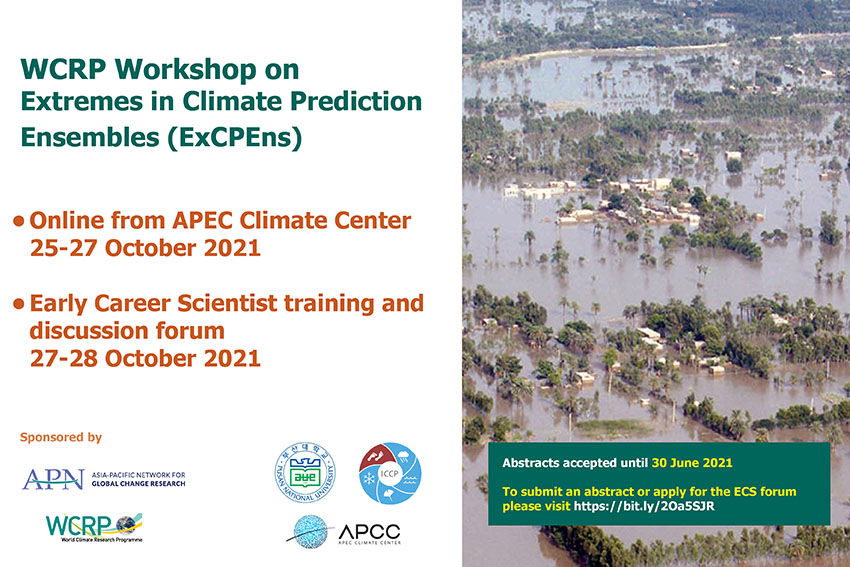
The purpose of the WCRP Workshop on Extremes in Climate Prediction Ensembles (ExCPEns), which will be held from 25 to 27 october 2021 and followed by an ECS training and discussion forum (27-28 October 2021), is to provide a focal point for current research aimed at exploiting subseasonal, seasonal, annual to decadal and longer-term prediction ensembles to improve the prediction and understanding of extreme weather and climate events.
- To submit an abstract and to apply for the ECS training and discussion forum, visit the workshop website
- Deadline for abstract submission and application for the ECS training: June 30, 2021
- To read the brochure, click here
Challenge to improve Sub-seasonal to Seasonal Predictions using Artificial Intelligence is now live!
- Details
We have launched a competition to improve, through Artificial Intelligence and/or Machine Learning techniques, the current precipitation and temperature forecasts for 3 to 6 weeks into the future from the best computational fluid dynamic models available today. Teams can win several prizes, up to 15K. To find out more and get involved, click the heading above.
Note: Town halls on 2 June and 10 June 2021!
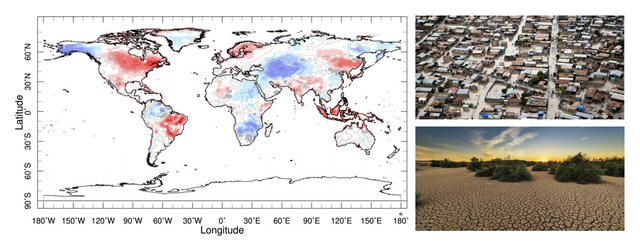
- Details
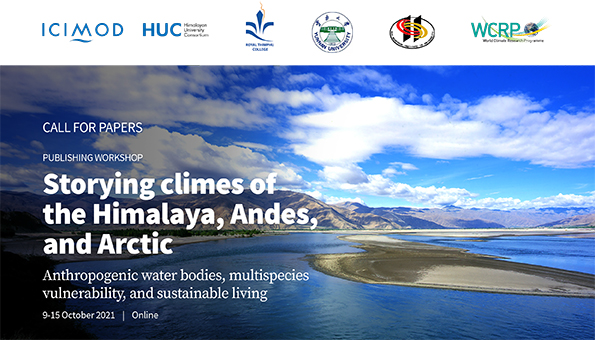
Call for papers
Consisting of 4-5 thematic sessions, the workshop, organized in partnership with My Climate Risk Lighthouse Activity, will be held online from 9 to 15 October 2021. It is a combination of thematic keynote talks, individual presentations of original research papers, and peer discussions. At the conclusion of the workshop, the designated publishing editors will work closely with participants to revise their papers for publication as a journal special issue or an edited book.
How to answer the call?
Submit the title and the abstract of your paper (maximum 500 words) or your entire draft before 25 June 2021 to
To download the Call for papers announcement, click here.
For more information, visit the workshop website.
- Details

The European Space Agency has been selected by the World Climate Research Programme (WCRP) as the host for a new International Project Office, dedicated to supporting the Coupled Model Intercomparison Project (CMIP). Set to open in September 2021, the new CMIP International Project Office will be based at the agency’s European Centre for Space Applications and Telecommunications in the UK.
Initiated by WCRP in 1995 and currently in its sixth phase, CMIP brings over 30 climate modelling centres from countries around the world into a single framework. The project enables scientists to validate models by testing how they perform against real-world observations and accurately simulate underlying climate processes.
The need for a dedicated CMIP international office reflects the growing input of CMIP products to the IPCC assessment reports but also the growing worldwide participation from climate modelling groups and their widening use across the research community, in national and climate assessments, by climate services and increasingly, the private sector which requires such information to manage climate risk.
Hosting the CMIP Project Office at ESA strengthens the link between climate observation and modelling prediction communities, and supports a key recommendation from the most recent WCRP review.
To lean more: https://climate.esa.int/en/news-events/esa-to-host-global-climate-modelling-project-office/
- Details
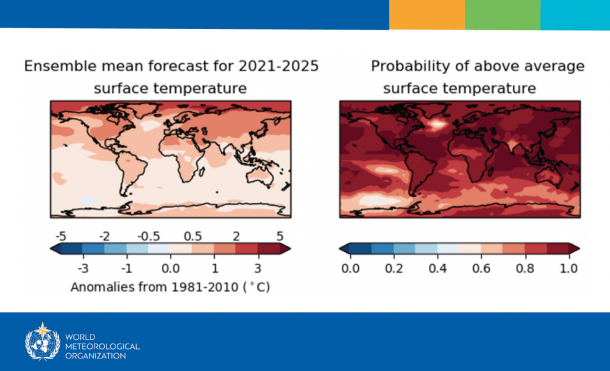
There is about a 40% chance of the annual average global temperature temporarily reaching 1.5°C above the pre-industrial level in at least one of the next five years – and these odds are increasing with time, according to a new climate update issued by the World Meteorological Organization (WMO).
There is a 90% likelihood of at least one year between 2021-2025 becoming the warmest on record, which would dislodge 2016 from the top ranking, according to the Global Annual to Decadal Climate Update, produced by the United Kingdom’s Met Office, the WMO lead centre for such predictions.
- To read the WMO Global Annual to Decadal Climate Update for 2021-2025, click here
- WMO Press Release
- Met Office Press Release


